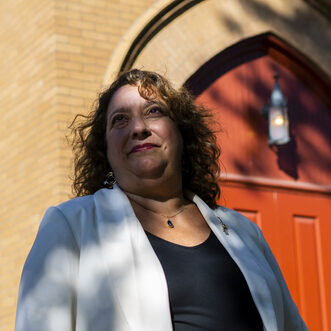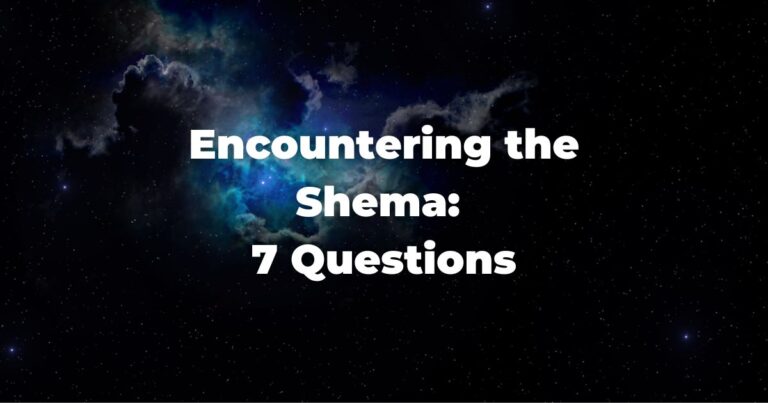The Morning Service (Shaḥarit or Shacharit) begins with a series of opening prayers and passages for devotional study that include introductory benedictions.
These blessings, called Birkhot Ha-shaḥar (also spelled Birchot Hashachar), are generally chanted aloud by the prayer leader.
The introductory portion of the Morning Service concludes with the recitation of the thirtieth psalm and its attendant Mourner’s Kaddish.
The service continues with a long series of psalms and other biblical texts collectively called P’sukei D’zimra (Verses of Song), after which the congregation is formally called to worship.
After this call to prayer, popularly known as the Bar’khu (also spelled Barechu), the congregation recites the large-scale version of the Sh’ma. This includes its two long opening blessings, the three paragraphs of the Sh’ma itself, and a long closing benediction.
The congregation then rises to recite the Amidah prayer, which is generally repeated aloud by the individual leading the service.
In the course of this repetition, the third blessing is expanded to include the K’dushah prayer, a litany of special sanctity that may only be recited in the presence of a minyan (a group of ten Jewish adults).
In some congregations, the Amidah is sung aloud until the congregation is led in the K’dushah, after which worshipers conclude their prayers silently.
This is then followed directly by private penitential prayers collectively called Taḥanun.
Taḥanun, however, is not recited on days deemed even slightly joyous.
On Monday and Thursday mornings, the service continues with the formal chanting of the beginning of the next TorahRefers to the first five books of the Hebrew Bible, the Tanakh, also called the Five Books of Moses, Pentateuch or the Hebrew equivalent, Humash. This is also called the Written Torah. The term may also refer to teachings that expound on Jewish tradition. Read more portion to be read as part of the regular calendar of readings.
The conclusion of the Morning Service begins with Ashrei, the liturgical setting of Psalm 145 with two introductory verses, Psalms 84:5 and Psalms 144:15.
The TalmudReferring to one of two collections, the Jerusalem and Babylonian Talmuds, edited in the 6th century, that contains hundreds of years of commentary, discussion, and exploration of the ideas in the Mishnah. One could describe it as Mishnah + Gemara = Talmud Read more suggests that Ashrei is a kind of catechism of basic beliefs and therefore should be recited three times a day (BT Berakhot 4b).
What is striking about Ashrei is the manner in which it moves from singular to plural language. Within the context of words of prayer most often spoken in the plural, Ashrei provides an opportunity for a personal pledge of faith and for a private examination of belief in God.
Ashrei is generally followed by Psalm 20, but there are some occasions where Psalm 20 is omitted, including:
- Rosh Ḥodesh
- Ḥanukkah
- Ḥol Ha-mo·eid
- Purim and Purim Katan (the date of Purim in the first Adar of a thirteen-month year)
- The days before and after Passover, Shavuot, and Sukkot
- The day before Rosh Hashanah
- The day before Yom Kippur
- Yom Ha-atzma·ut
- Yom Y’rushalayim
- Tishah Be’av
- In a house of mourning
After Psalm 20 is U’va L’tziyon which is a long miscellany of verses.
All services conclude with the Aleinu hymn.
Originally, Aleinu was said only on Rosh Hashanah, but it has been a feature of all services since at least medieval times. Aleinu should be said while standing. At the words vaanaḥnu korim, one should bend the knee and bow at the waist.
The prayerbooks of the Conservative movement have continued to eliminate one line from the Aleinu originally removed by censors during the Middle Ages. This line, undoubtedly original, evaluates the supreme worth of Jewish faith in comparison with the faiths of others and declares those other faiths to be empty and meaningless.
In that moderns tend to esteem the kind of positive self-evaluation that does not involve the concomitant denigration of others, this line has been kept out.
In many congregations, Aleinu is followed by the daily psalm and then by a final Mourner’s Kaddish.
The psalm of the day is a vestige of Temple days, when a psalm was assigned to each day of the week and then sung aloud on that day by the Levites. The Talmud (BT Rosh Hashanah 31a) gives a specific reason why each psalm is connected to its day of the week.
There are also special psalms for specific days and seasons of the year.
Psalms 104 is read on Rosh Ḥodesh and Psalms 27 is read throughout the entire High Holiday season. This begins with the first of Elul and ends on Hoshana Rabbah, the day the ancients imagined the final verdicts for all humankind to be sealed.
Every day of the year, this service follows some variation of the order of prayers outlined above.
Thus, it is possible for any Jew from any community to walk into a service in any synagogue that maintains a traditional prayer service and be able to follow along and participate.
While it may feel daunting for newcomers to the world of formal worship, over time people will notice and remember how the elements fit together.
Adapted with permission from The Observant Life.
Authors
-

Rabbi Dr. Karen G Reiss Medwed, works in higher education, as a Senior Assistant Dean for Faculty Affairs and Network Engagement. Dr. Reiss Medwed's scholarship includes understanding the growth of the field of digital education and instruction in higher education, K-12 education and faith-based education. Dr. Reiss Medwed was ordained by JTS in 1995, and earned her Ph.D. from New York University's Steinhardt School of Education in Curriculum, Teaching and Learning with a specialization in Jewish education in 2005. She was a Steinhardt Fellow for the four years of her doctoral studies. She went on to design and develop a Master of Education program in Faith-Based Education at the University of Pennsylvania's Graduate School of Education. Dr. Medwed has studied the development of innovative practices for digital learning and instruction and leadership in higher education.
View all posts -



The Observant Life: The Wisdom of Conservative Judaism for Contemporary Jews distills a century of thoughtful inquiry into the most profound of all Jewish questions: how to suffuse life with timeless values, how to remain loyal to the covenant that binds the Jewish people and the God of Israel, and how to embrace the law while retaining an abiding sense of fidelity to one’s own moral path in life. Written in a multiplicity of voices inspired by a common vision, the authors of The Observant Life explain what it means in the ultimate sense to live a Jewish life, and to live it honestly, morally, and purposefully. The work is a comprehensive guide to life in the 21st Century. Chapters on Jewish rituals including prayer, holiday, life cycle events and Jewish ethics such as citizenship, slander, taxes, wills, the courts, the work place and so much more.
View all posts






